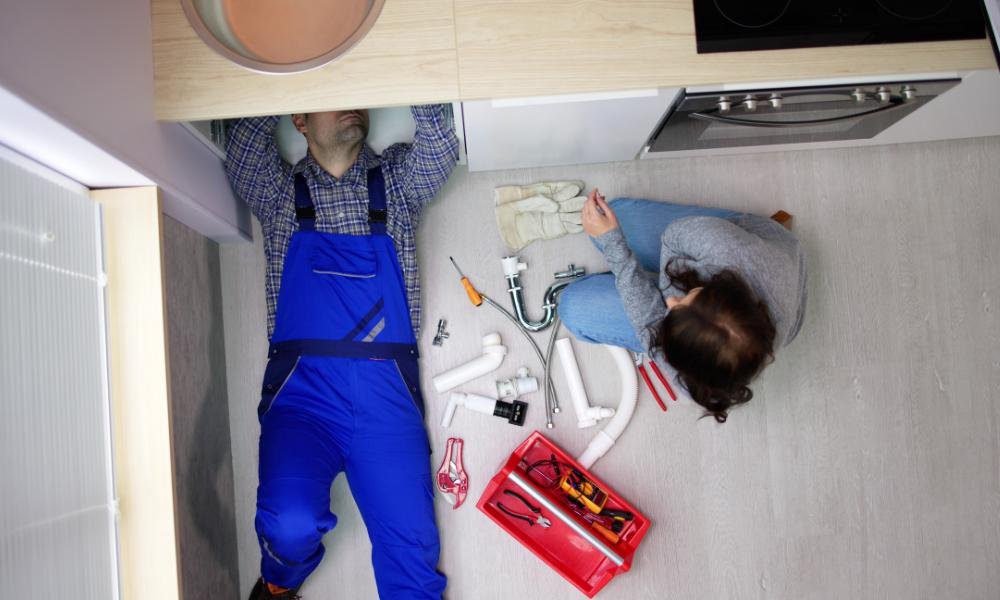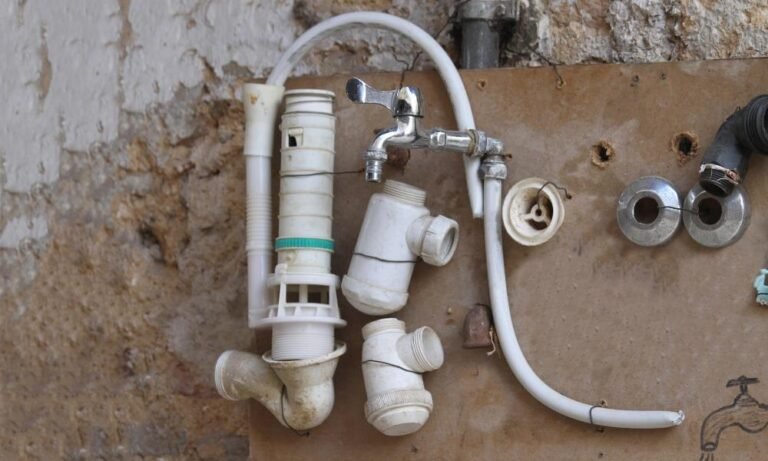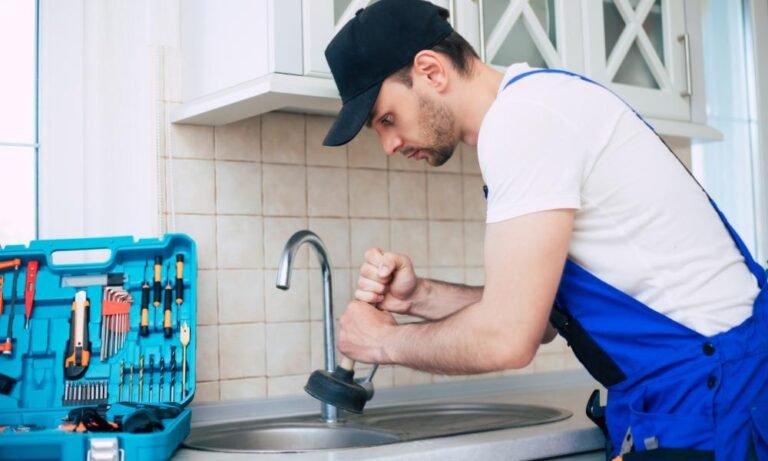Estimated reading time: 5 minutes
Plumbing issues often come with a telltale drip or a burst pipe, but sometimes the most damaging culprits are invisible—like the minerals in your water. Hard water, rich in calcium and magnesium, can create significant problems for your plumbing system over time. These minerals may not be visible, but their effects are unmistakable, leading to clogged pipes, inefficient appliances, and costly repairs.
Understanding how mineral buildup affects your plumbing can help you take the right steps to protect your home and save money in the long run.
What You’ll Learn in This Guide
- What hard water is and how to recognize it.
- The hidden ways it damages pipes, fixtures, and appliances.
- The financial and functional impacts of mineral deposits.
- Practical tips to minimize damage and protect your plumbing.
What Is Hard Water?
Hard water refers to water that contains high levels of dissolved minerals, specifically calcium and magnesium. These minerals accumulate as water flows through natural deposits like limestone and chalk before entering your home.
How to Spot Hard Water in Your Home
- Visible Residue: White, chalky stains on faucets, showerheads, and glassware.
- Soap Problems: Soap and shampoo lather less effectively, leaving behind a sticky film.
- Slow Water Flow: Reduced water pressure can be a sign of mineral deposits in your pipes.
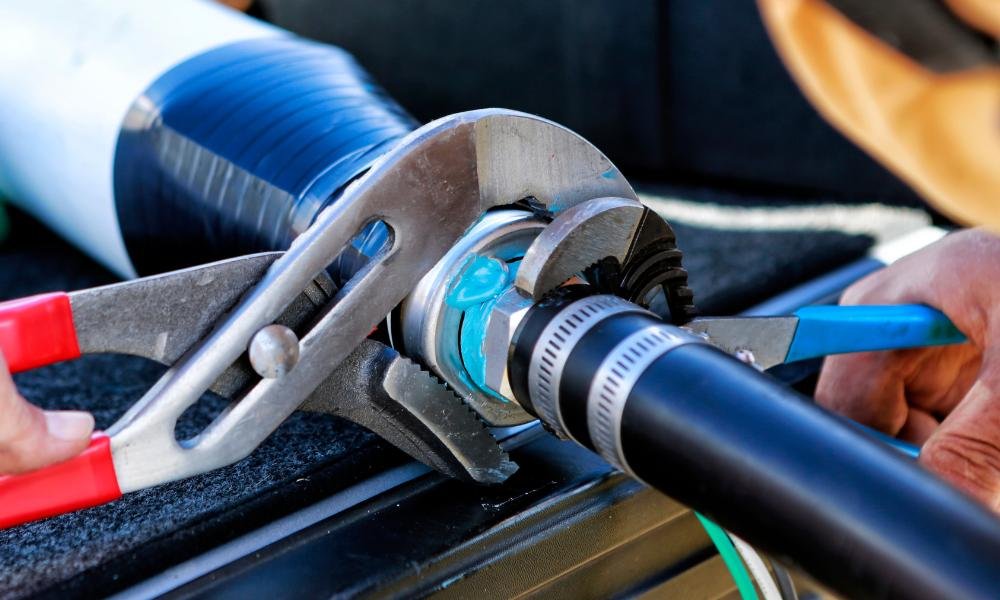
How Mineral Buildup Damages Plumbing
Blocked Pipes
Minerals in water stick to the inner walls of pipes, creating a chalky residue called limescale. Over time, this narrows the pipe diameter, restricting water flow and increasing pressure on the plumbing system.
- What Happens: Blockages lead to sluggish water flow and higher risk of leaks.
- The Result: Frequent clogs, reduced efficiency, and costly repairs.
Tip: If water pressure drops throughout your home, it’s time to inspect for scale buildup.
Fixture Corrosion
Minerals can also coat faucets and showerheads, damaging their surfaces and reducing functionality.
- Corrosion Risk: Hard deposits weaken metal surfaces, shortening their lifespan.
- Reduced Performance: Build-up in aerators or nozzles diminishes water flow and efficiency.
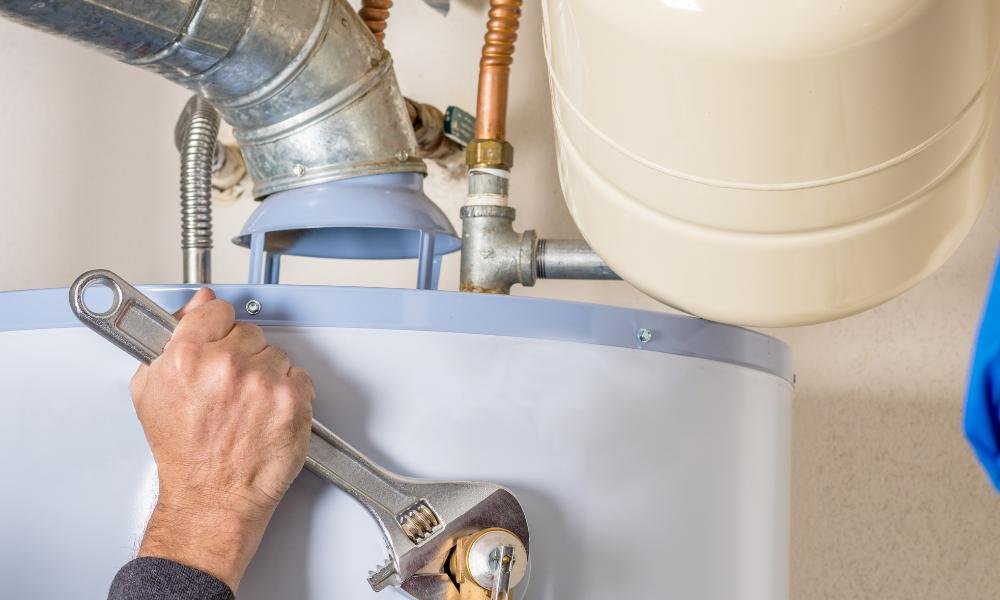
Water Heater Inefficiency
Water heaters are especially vulnerable to mineral buildup because heating water accelerates the accumulation of deposits.
- Sediment Accumulation: Minerals settle at the bottom of the tank, reducing its heating efficiency.
- Higher Energy Costs: A heater struggling to maintain temperature uses more energy, driving up bills.
Did You Know? A water heater clogged with scale can increase energy consumption by up to 25%.
Appliance Wear and Tear
Washing machines, dishwashers, and refrigerators with water dispensers all suffer from exposure to hard water.
- Clogged Components: Mineral deposits clog hoses, filters, and jets, causing strain on the appliance.
- Reduced Lifespan: Constant buildup forces appliances to work harder, leading to early failure.
Pipe Damage and Leaks
Older metal pipes are particularly vulnerable to the corrosive effects of minerals in water.
- Weakened Material: Over time, deposits corrode the pipe walls, leading to cracks or leaks.
- Discolored Water: Rust from corroded pipes can taint the water supply.
The Hidden Costs of Hard Water
Hard water doesn’t just impact your plumbing—it affects your wallet and daily life.
Frequent Repairs
The more scale builds up in your system, the more often you’ll need repairs to address clogs, leaks, or appliance breakdowns.
Higher Utility Bills
- Blocked pipes and inefficient appliances use more energy, leading to increased water and electricity costs.
Reduced Property Value
Visible damage like stained fixtures or inefficient systems can make your home less appealing to buyers.
How to Protect Your Plumbing from Mineral Damage
Install a Water Softener
A water softener removes calcium and magnesium from your water, significantly reducing scale formation.
- Benefits: Protects pipes, improves appliance efficiency, and extends the lifespan of your plumbing system.
Regular Maintenance
Routine maintenance can go a long way in minimizing damage.
- Flush Your Water Heater: Drain the tank annually to remove sediment and maintain efficiency.
- Descale Fixtures: Soak faucets and showerheads in vinegar to dissolve mineral deposits.
Tip: Use a descaling solution regularly in appliances like dishwashers and coffee makers.
Upgrade Plumbing Materials
If you’re renovating or repairing your home, consider replacing older metal pipes with materials like PEX or copper that resist corrosion.
Clean Fixtures Regularly
A little maintenance can go a long way in keeping your fixtures looking and performing their best.
- Natural Solutions: Use lemon juice or vinegar to remove buildup from faucets and showerheads.
When to Call a Professional
If you’re dealing with recurring plumbing issues, it’s best to consult a professional plumber.
- Signs You Need Help:
- Persistent clogs or leaks.
- Discolored water or unusual odors.
- Drastic drops in water pressure.
A professional can assess your system, recommend a water softener, and tackle existing scale buildup to protect your plumbing in the long run.
Conclusion
Hard water may not seem like a serious issue, but its long-term effects on your plumbing can’t be ignored. From clogged pipes and corroded fixtures to inefficient appliances, the costs of mineral buildup add up quickly. The good news? You can take control with preventive measures like installing a water softener, maintaining your plumbing, and seeking professional help when needed.
Don’t let hard water drain your resources—act now to safeguard your plumbing system and save money in the long run. If you’re unsure where to start, reach out to a licensed plumber for an assessment and personalized solutions. Your pipes—and your wallet—will thank you!
